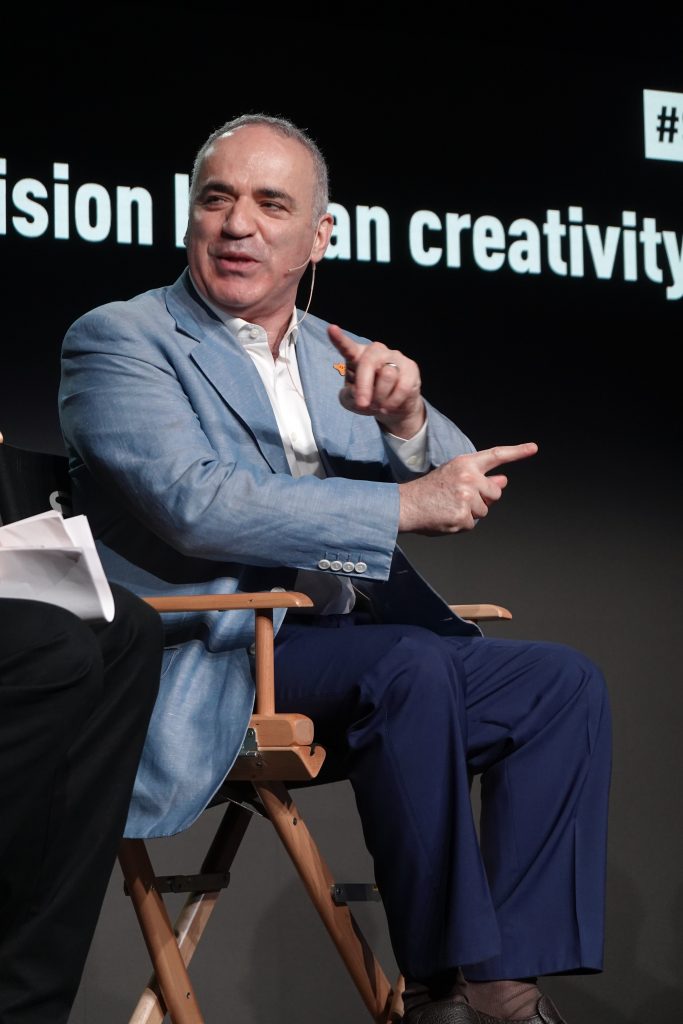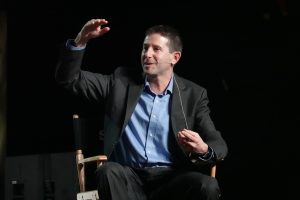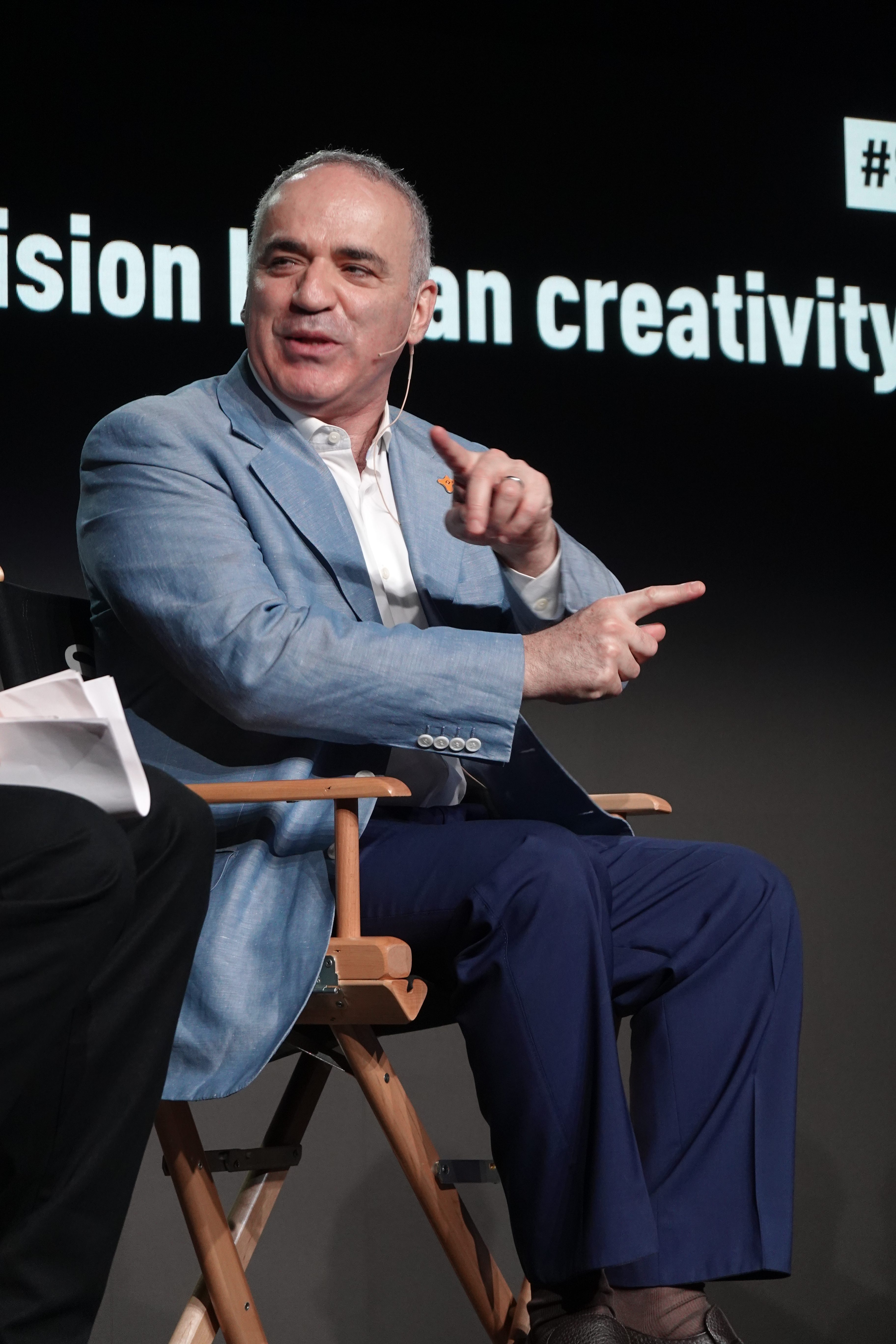
World chess champion Garry Kasparov told an audience at SXSW in Austin that while some worry about robots taking over the world, “humans still have a monopoly on evil.”
As the author of a book on Vladimir Putin, Kasparov is well aware of the existence of evil on earth, but the focus of the panel he was speaking at was artificial intelligence (AI). Another SXSW panelist on March 10 was Dr. Peter Stone, Professor of computer science at the University of Texas, who outlined the three “big open grand challenges of science: the origin of the Universe, the origin of life, and the nature of intelligence.”
In dealing with the third of those questions, Stone said that we are “far from understanding how the brain works, but as a physical artifact we should, in principle, be able to build something that functions like the human brain.” He explained that the “view of AI as a danger comes from a very tempting fallacy. As soon as people see a computer doing something better than they can, they believe it can do everything better.”

Stone does, however, recognise there “is a danger of people using robots to cause damage to humanity. If you tell an artificial intelligence to optimise something that is wrong, they will do it. They don’t care about things unless we program them to care about things.”
Kasparov said that “public fantasies” about AI are “being pushed by the media. AI will always need human guidance.” Stone emphasized we “need to talk about AI technologies, not AI technology, as it can be applied in many different areas, each with its own potential benefits and risks.” But, he warned, “there are no guarantees. We have to be vigilant.”
On a lighter note, Kasparov noted that “technology is the main reason people can sit around to complain about technology!” He sees a potential benefit for AI in the field of education.
“In the 50s kids wanted to be space engineers, but by the 90s they wanted to be financiers. My hope is that AI will shift that back so that more young people will aspire to be space engineers again.”
For more on AI, visit https://ai100.stanford.edu/
Photos by C. Cunningham
